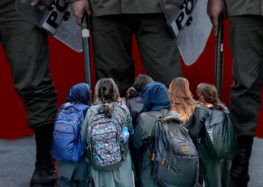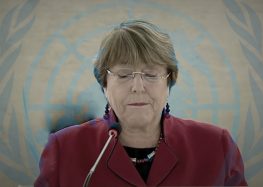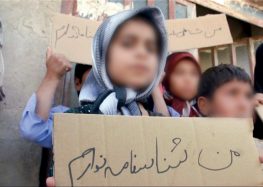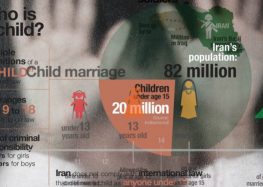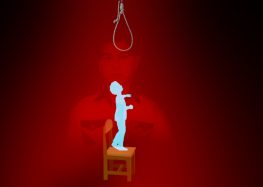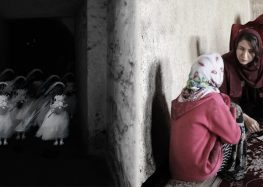Nine Years After It Was Drafted, Iran’s Parliament Begins Debating Child Abuse Bill
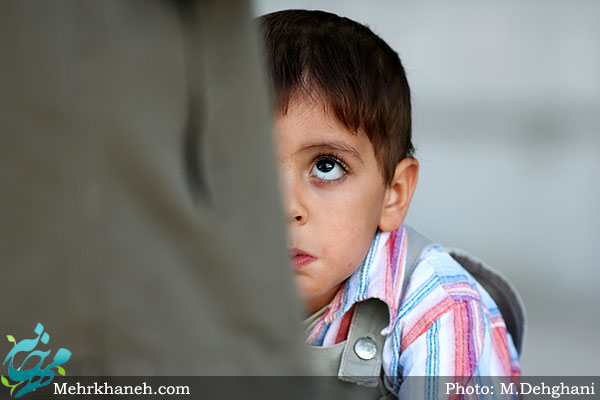 Bill Lacks Enforcement Mechanisms
Bill Lacks Enforcement Mechanisms
A bill drafted nine years ago in Iran to combat child abuse is finally being debated by Parliament following a number of recent abuse cases widely covered by the media.
On July 24, 2018, lawmakers overwhelmingly approved the outline of the Bill For the Protection of the Rights of Children and Youth, which is intended to protect minors from violence, abuse, and harassment. Experts have criticized the bill for lacking solid enforcement mechanisms.
“Legislation is the first step before enforcement,” Farideh Gheirat said in an interview with the Center for Human Rights in Iran (CHRI) on July 24. “We must have a comprehensive law to protect children and then reinforce agencies to provide support. We cannot act in a legal vacuum.”
“So far we haven’t had a comprehensive law to protect the rights of children and because of that, child abusers have gone unpunished and go on to commit more crimes,” she added. “Of course, this bill does not address every kind of abuse but at least it has defined some of them in legal terms.”
The bill was first submitted by the judiciary to the government in May 2009. It took more than two years for then-President Mahmoud Ahmadinejad’s administration to revise it before sending it to Parliament in November 2011 for final approval. It had been stalled at the committee stage until this month.
The bill dictates punishments ranging from fines to imprisonment for various kinds of harmful behavior toward children under the age of 18 including physical violence, sexual assault, and economic exploitation.
It enables minors convicted of crimes or sentenced to death to lodge multiple appeals in court to reduce the chance of harsh sentencing. The bill also urges the government to avoid policies that could damage children’s physical, psychological, social and moral well-being.
In October 2017, Iran-based attorney Nemat Ahmadi, who specializes in child abuses cases, told CHRI that the state is unlikely to enforce the bill once it becomes law.
“I have read the bill,” he said. “It has a clear objective but lacks details. It would be good to write more complete laws, but that isn’t enough. The question is: Does society have the resources to meet the legal requirements?”
Some MPs Claim Other Issues Should Be Given More Priority
Only 22 members of Parliament (MPs) voted against the draft bill compared to the 158 who voted yes. Some MPs argued other issues should be prioritized above child protection.
“At present, the people are grappling with economic problems and the passage of this bill is not a priority for the country,” said MP Mohammad Javad Abtahi during deliberations before the vote. “We should give priority to housing, the currency situation, and unemployment.”
Another opponent, MP Hosseinali Deligani, argued: “In this bill, it says parents who refuse to send their kids to school are committing a crime. But we have not thought about children who have difficulty going to school when the father is unable to earn money. Therefore we have to give priority to building our economic infrastructure.”
But MP Mostafa Kavakebian responded that according to Islam, “the rights of children and the weak must be respected.”
Kavakebian, a member of the Parliamentary Subcommittee on Human Rights, also dismissed claims by some radical conservatives that the bill follows guidelines set by UNESCO’s 2030 Agenda for Sustainable Development.
Iran renounced the non-binding guidelines after the supreme leader forbade them from being implemented in Iran’s education system following a smear campaign launched by religious conservatives and hardliners.
Public concerns about the lack of mechanisms for enforcing child protection laws arose in January 2018 when Saeed Toosi, a well-known Quran reciter, was acquitted of child abuse charges after initially being sentenced to four years in prison in 2016.
The office of the supreme leader reportedly intervened in favor of Toosi before he was acquitted.
Other disturbing stories have also brought the issue into the limelight.
On July 24, 2018, the day the draft bill was passed, Ehya News published a report about a girl named “Negar” in the city of Karaj who had been abused all her life but her father.
The state-run Islamic Republic of Iran (IRIB) broadcasting organization had aired a similar report two months earlier.

